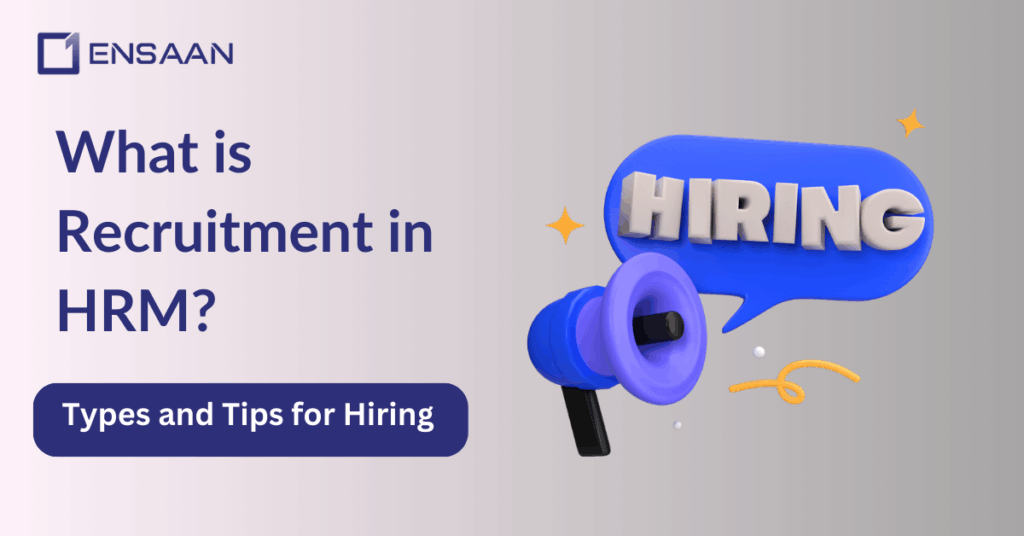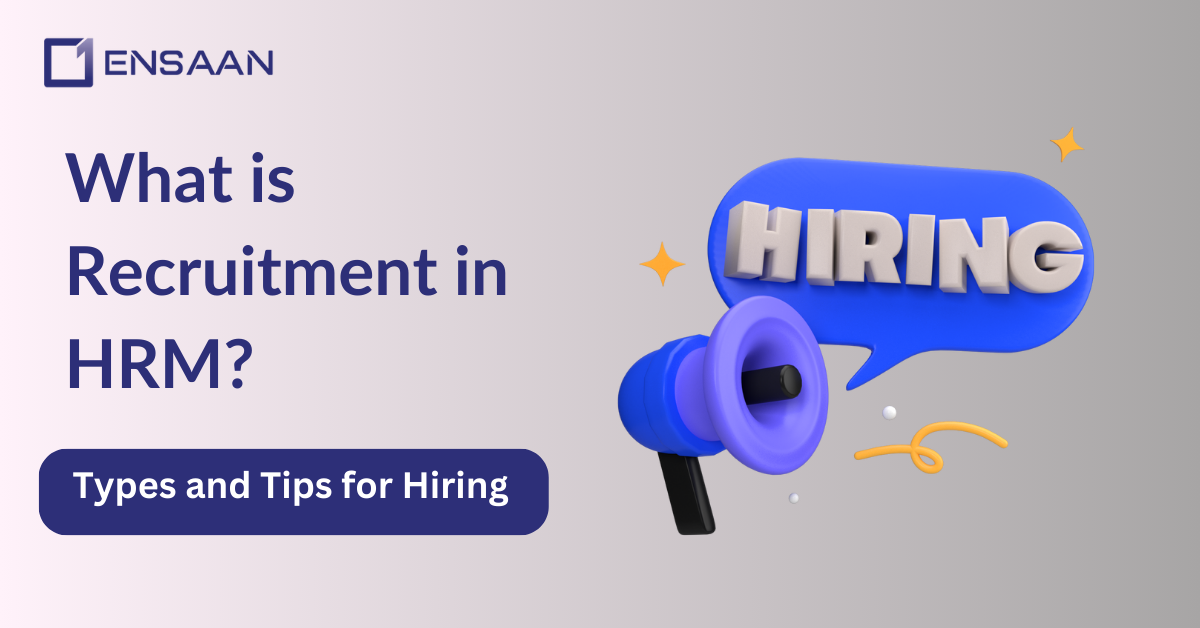
Is HR Recruitment Evolving? Trends, Challenges, and Best Practices
The landscape of HR recruitment is undergoing a profound transformation. Driven by technological advancements, evolving workforce expectations, and the ever-present need to attract and retain top talent, HR recruitment professionals must adapt to remain effective. This article explores the key trends shaping HR recruitment, the challenges recruiters face, and the best practices that can help organizations build a competitive advantage.
The Shifting Sands of HR Recruitment
Traditional HR recruitment methods are becoming increasingly outdated. The rise of digital platforms, social media, and data analytics has revolutionized the way companies source, screen, and hire candidates. Here’s a closer look at some of the major shifts:
- The Rise of Digital Recruitment: Online job boards, social media platforms like LinkedIn, and company career websites are now the primary sources for finding candidates. HR recruitment teams are leveraging these platforms to reach a wider pool of potential employees.
- The Importance of Employer Branding: Candidates are no longer just looking for a job; they’re looking for a company that aligns with their values and offers a positive work environment. Employer branding plays a crucial role in attracting top talent.
- Data-Driven Recruitment: HR recruitment is becoming more data-driven, with analytics being used to track key metrics, identify trends, and improve the efficiency of the hiring process.
- Focus on Candidate Experience: A positive candidate experience is essential for attracting and retaining talent. Companies are investing in creating a seamless and engaging recruitment process.
- The Growth of Remote Work: The rise of remote work has expanded the talent pool for many companies, allowing them to recruit candidates from anywhere in the world. This also changes the way HR recruitment is conducted, with virtual interviews and onboarding processes becoming more common.
Key Trends Shaping HR Recruitment
Artificial Intelligence (AI) in Recruitment
AI is transforming HR recruitment by automating tasks, improving efficiency, and enhancing the candidate experience. AI-powered tools can be used for:
- Screening Resumes: AI can quickly and accurately screen resumes to identify candidates who meet the minimum qualifications for a job.
- Chatbots: Chatbots can answer candidates’ questions and provide information about the company and the job.
- Predictive Analytics: AI can be used to predict which candidates are most likely to be successful in a role.
Focus on Diversity, Equity, and Inclusion (DE&I)
DE&I is becoming increasingly important in HR recruitment. Companies are recognizing the value of having a diverse workforce and are taking steps to ensure that their recruitment processes are fair and inclusive. [See also: Diversity in the Workplace: A Comprehensive Guide]
Skills-Based Hiring
Instead of focusing solely on degrees and experience, companies are increasingly looking for candidates with specific skills that are relevant to the job. This approach allows companies to tap into a wider pool of talent and find candidates who are a better fit for the role. HR recruitment must adapt to identify and assess key skills beyond traditional qualifications.
Personalized Candidate Experience
Candidates expect a personalized experience throughout the HR recruitment process. Companies are using technology to tailor their communication and engagement to each individual candidate. This includes personalized emails, targeted job recommendations, and customized onboarding experiences.
Emphasis on Soft Skills
While technical skills are important, companies are also placing a greater emphasis on soft skills such as communication, teamwork, and problem-solving. These skills are essential for success in today’s collaborative work environment. HR recruitment professionals need to develop methods for assessing these skills during the hiring process.
Challenges in HR Recruitment
Despite the advancements in technology and best practices, HR recruitment still faces a number of challenges:
- Talent Shortage: In many industries, there is a shortage of qualified candidates. This makes it difficult for companies to find and hire the talent they need.
- Attracting Top Talent: Competition for top talent is fierce. Companies need to offer competitive salaries, benefits, and a positive work environment to attract the best candidates.
- Time-to-Hire: The time it takes to fill a position can be a significant challenge. Companies need to streamline their recruitment processes to reduce time-to-hire.
- Cost of Recruitment: The cost of recruitment can be high, especially when using external agencies. Companies need to find ways to reduce their recruitment costs without sacrificing quality.
- Keeping Up with Technology: The rapid pace of technological change can make it difficult for HR recruitment professionals to keep up with the latest tools and trends.
Best Practices for Effective HR Recruitment
To overcome these challenges and build a successful HR recruitment strategy, organizations should consider implementing the following best practices:
- Develop a Strong Employer Brand: A strong employer brand can help attract top talent and differentiate your company from the competition.
- Use Data Analytics: Data analytics can help you track key metrics, identify trends, and improve the efficiency of your recruitment process.
- Focus on Candidate Experience: Create a seamless and engaging candidate experience to attract and retain top talent.
- Leverage Technology: Use technology to automate tasks, improve efficiency, and enhance the candidate experience.
- Invest in Training and Development: Provide HR recruitment professionals with the training and development they need to stay up-to-date on the latest trends and best practices.
- Build Relationships with Universities and Colleges: Establishing relationships with universities and colleges can help you tap into a pipeline of talented graduates.
- Offer Competitive Compensation and Benefits: To attract top talent, you need to offer competitive compensation and benefits packages.
- Promote Diversity, Equity, and Inclusion: Create a recruitment process that is fair and inclusive to attract a diverse pool of candidates.
- Utilize Employee Referrals: Employee referrals are a great way to find qualified candidates who are a good fit for your company culture.
- Regularly Evaluate and Improve Your Recruitment Process: Continuously evaluate your recruitment process and make improvements based on data and feedback.
The Future of HR Recruitment
The future of HR recruitment is likely to be even more data-driven, technology-enabled, and candidate-centric. Companies that embrace these trends and adapt their recruitment strategies will be best positioned to attract and retain top talent in the years to come. HR recruitment will increasingly rely on predictive analytics to anticipate future hiring needs and proactively source candidates. The use of virtual reality (VR) and augmented reality (AR) could also become more prevalent in the recruitment process, allowing candidates to experience the company culture and work environment before accepting a job offer. [See also: The Future of Work: Key Trends and Predictions]
Conclusion
HR recruitment is a critical function for any organization. By understanding the key trends, challenges, and best practices, companies can build a successful HR recruitment strategy that helps them attract and retain the talent they need to thrive. Embracing technology, focusing on candidate experience, and prioritizing DE&I are essential for navigating the evolving landscape of HR recruitment and securing a competitive advantage in the talent market. The success of any organization hinges on its ability to attract, hire, and retain the best people, making HR recruitment a strategic imperative for long-term growth and sustainability.

